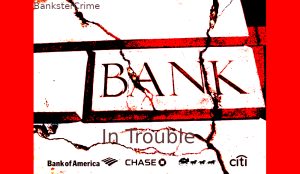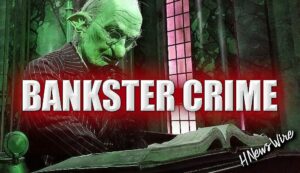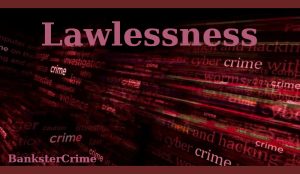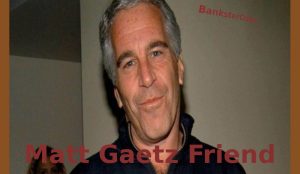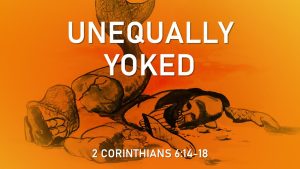The Bible has a lot to say on the subject of injustice. We know that God is in favor of justice; we know that He is against injustice, even in the most basic terms. The writer of Proverbs mentions this: “The LORD detests differing weights, / and dishonest scales do not please him” (Proverbs 20:23). Justice is foundational to God’s throne (Psalm 89:14), and God does not approve of partiality, whether we are talking about a weighted scale or an unjust legal system (Leviticus 19:15). There are many other verses, in both Old and New Testaments, that give us an idea of God’s distaste for injustice (2 Chronicles 19:7; Job 6:29; 11:14; Proverbs 16:8; Ezekiel 18:24; Romans 9:14).
Isaiah lived in a time when Judah was struggling under the weight of injustice: “Justice is driven back, / and righteousness stands at a distance; / truth has stumbled in the streets, honesty cannot enter. / Truth is nowhere to be found, / and whoever shuns evil becomes a prey. / The LORD looked and was displeased / that there was no justice” (Isaiah 59:14–15). God’s message for them was simple: “Learn to do right; seek justice. / Defend the oppressed. / Take up the cause of the fatherless; / plead the case of the widow” (Isaiah 1:17). Later, God tells them to “lose the chains of injustice” (Isaiah 58:6; cf. Psalm 82:3), indicating that injustice is a form of bondage and oppression.
insurance companies will start to increase the use dishonest and unethical “adjustors” to set out to deny lawful proper claims for insurance, such as when someone has fully paid their expensive premiums, but then is cruelly and out of hand denied much needed assistance from these insurance companies for various health problems, automobile accidents, home and renters policy mishaps, professional liability defense, general business liability assistance, property damage, and other types of accidents and mishaps that these insurance companies state that they were designed to protect their customers with.
These insurance companies know full well that the poor and middle class do not have the ability to hire and retain competent high powered lawyers to defend their interests, either by entangling with them or in dealing with the entities that are coming after them in the above-named types of life problems.
Insurance companies will start to increase the use dishonest and unethical “adjusters” to set out to deny lawful proper claims for insurance, such as when someone has fully paid their expensive premiums, but then is cruelly and out of hand denied much needed assistance from these insurance companies for various health problems, automobile accidents, home and renters policy mishaps, professional liability defense, general business liability assistance, property damage, and other types of accidents and mishaps that these insurance companies state that they were designed to protect their customers with.
Similarly, as the Insurance industry benefited from screwing over the American people, the Banking industry simultaneously have begun again to rape the American people, by instituting usurious collections and interest rates, sometimes as high as 50-60%, on such things as student loans in default through no fault of the borrower (due to sickness, injury, loss of employment, bankruptcy) and credit card companies now routinely rape and pillage the American people with ungodly APRs and other “bait and switch” mechanisms designed to fleece their customers, enriching themselves while impoverishing their customers.
All the while these banks and insurance companies are charging more than ever for premiums, simple day to day processes such as ATM machine usage, finance charges, late fees, and other highway robbery-type methods to steal from the American people.
The real estate industry, headed up by men such as Ben Carson of HUD, have now mercilessly begun to crush tenants and mortgage holders, denying them basic warranties of safety and habitability, skirting all state and federal regulation so as to make a buck.
Conservative leaders were supposed to mean something different than giving trillion-dollar international banks, real estate, and insurance companies the license to rape and pillage the American people, but “deregulation” is the proverbial “wolf in sheep’s clothing” or “Trojan horse” by these communist industries to devastate the American people, and they must be reigned in once again by the Democrat-led powers in the Congress and the Senate, and perhaps even the Judiciary (state and federal). Source
The shadow banks are back with another big bad credit bubble
“Anytime you have this much money chasing loans, you are going to have accidents,” a banker told me recently.
If all this newly borrowed money were being used to create new technology or enhance productivity, piling up all this debt might be a risk worth taking. But the evidence suggests that what it is mostly doing is artificially stimulating the economy. Companies have used much of this newly borrowed money to buy back their own shares, pay special dividends to private equity investors and acquire other companies, all of which have the effect of inflating stock prices. The recent wave of richly priced mergers and overpriced stock offerings and the declining returns offered by recent commercial real estate deals are all good indications of a credit bubble waiting to burst.
So, is this a replay of 2008?
In some ways no, as Fed Chairman Powell noted in his May 20 speech.
For starters, the regulated banking system is much better capitalized, with banks easily passing stringent “stress tests” now required by regulators to assess their ability to withstand the economic and financial equivalent of a Category 4 hurricane.
And household debt has grown no faster than household income and is concentrated in households best able to pay it back.
Even in the shadow banking system, the structure of investments has changed in ways that make it more difficult for investors to pull their money out at the first sign of trouble, making a “run” on the system less likely. Moreover, unlike regulated banks, shadow banks are not required to immediately “write down” the value of the loans in their portfolios when prices fall on the open market. That limits the amount of force or panic selling.
But in other ways, there are troubling parallels between the 2008 mortgage bubble and today’s bubble in corporate credit.
As before, too much of the lending growth is driven by investors’ search for yield rather than borrowers’ need for new capital.
And as before, this excess of supply relative to demand has led to a deterioration of lending standards that started in the shadow banking system and has now spread to regulated banks anxious about a further reduction in their market share. (My favorite stat: During the first three months of this year, according to Trepp, a data company, interest-only loans — loans requiring no payback of principal until the loan is due — accounted for three-quarters of all new commercial real estate loans.)
As before, regulated banks have discovered that they can make almost as much profit selling and lending into the shadow banking system as they can making and holding loans themselves.
And as before, regulators don’t know what they don’t know about the shadow banking system. They don’t know exactly where the risks are concentrated or how investors will respond to a turn in sentiment or an increase in defaults. They don’t know how much leverage the shadow banks have taken on and how much forced selling there will be if loan values fall. They don’t know all the indirect ways in which the regulated banks are exposed to the shadow banking system.
Another worrisome similarity is the way bankers have used their political clout with Republican politicians to fight off attempts by regulators to restrain their risk-taking.
Two years ago, when career bank regulators issued guidance meant to crack down on leveraged lending, for example, bankers went running to Republican leaders in Congress, who threatened a congressional veto unless they withdrew it.
And tucked into last year’s budget compromise was a Republican rider allowing business development companies, which have been springing up like mushrooms in a rain forest, to double the amount of money they can borrow relative to the amount of equity capital they raise from investors.
Perhaps the biggest similarity between the previous credit bubble and this one, however, is the stubborn reluctance of regulators to let some of the air out of the credit bubble before it bursts.
After the 2008 crisis, the United States and a dozen other industrialized countries created a clear and simple mechanism for doing so, known as the “countercyclical capital buffer.” The rationale behind the buffer is that when unemployment is near historic lows and asset prices are at record highs when credit quality is declining and spreads are narrowing, banks should be required to set aside extra capital to protect against a downturn and reduce the amount of credit in the financial system.
Yet in March, with nearly all of those key indicators flashing red, the Federal Reserve’s Board of Governors voted 4 to 1 not to trigger the countercyclical capital requirements. The lone dissenter was Lael Brainard, a veteran of the Clinton White House and the Obama Treasury.
Randal Quarles, the Fed’s vice chairman and point man on bank supervision, declared afterward that the United States didn’t need to use countercyclical buffers because other regulatory controls were now so effective that the American banking system could weather any turbulence without them. In a subsequent talk at Yale University, Quarles, a one-time partner at the Carlyle Group, a private equity firm deeply involved in the shadow banking system, blamed — who else? — the media for overplaying and oversimplifying the risks from the rapid expansion of business lending.
And in his recent speech, Powell, who spent most of his life as a Wall Street lawyer and banker, assured his audience that regulators “will always act to address emerging risk” — which might ring true if you consider “acting” to mean monitoring, studying, sharing data and “working to ensure that banks are properly managing the risks they have taken on.” In other words, doing everything except actually requiring banks to throttle back on their riskiest business lending.
Meanwhile, the Financial Stability Oversight Council, comprising all the government’s financial market regulators, has also been sitting on its hands, monitoring everything but doing nothing. The council was created by Congress as part of the Dodd-Frank financial reform bill as a last line of defense against financial crises. But as with most other provisions of the law, the policy of the Trump administration has been to ignore or undermine it. The council is headed by Treasury Secretary Stephen Mnuchin, a former Goldman Sachs investment banker who eventually made more than $10 million buying and selling — with partners — a California bank that, after engaging in aggressive mortgage lending, failed during the last housing crisis.
Powell, Quarles, and Mnuchin are overconfident for the same reason Fed chairmen Alan Greenspan and Ben Bernanke and Treasury Secretary Henry Paulson were overconfident during the Bush years.
They place too much faith in the ability of financial firms to self-regulate and financial markets to self-correct when pricing of risk gets out of whack.
They place too much faith in outdated models of the economy and the financial system that do not account for the rapid growth of the shadow banking system.
And they ignore the “precautionary principle” — that, in an environment characterized by uncertainty, effective financial regulation requires taking the relatively modest risk of acting too soon — and sacrificing a bit of economic growth, corporate profits and investment returns — to avoid the much greater risk of acting too late and winding up with a financial and economic train wreck.
Powell, Quarles and Mnuchin are inclined, either by biography or ideology, to adopt a stance of watchful waiting while assuring us that today is nothing like 2008 and the situation is well in hand.
So remember those names: Powell, Quarles, and Mnuchin. When the corporate credit bubble bursts — when companies can’t repay their debts and the shadow banks collapse and lending dry up and stock prices plunge and the economy again falls into recession — they are the ones who should be hauled up before the court of public opinion and called to account. Source
The only way to truly escape injustice is to first accept that God is perfectly just and humans are inherently unjust, i.e., less than perfect, and then to accept God’s righteousness (1 John 1:5–9). Only when we are no longer concerned with making ourselves righteous can we trust the One who justifies the ungodly (Romans 4:5). Then, as God’s children, we can see clearly to combat the injustice around us with a merciful attitude (Micah 6:8; James 1:27).
Jesus is totally just; there is no injustice in Him at all. Because of His perfection, Jesus can provide true justice. In fact, “the Father judges no one but has entrusted all judgment to the Son” (John 5:22). We look forward to the time when righteousness and justice will be the order of the day and injustice will be banished forever: “Of the greatness of his government and peace, there will be no end. He will reign on David’s throne and over his kingdom, establishing and upholding it with justice and righteousness from that time on and forever. The zeal of the LORD Almighty will accomplish this” (Isaiah 9:7).
The Birth Pains Are Growing Stronger….
“Unless God has raised you up for this very thing, you will be worn out by the opposition of man and devils”…
My name is Steve Meyers and I need to share a vision and warning that the Lord showed me back in April 2007….
Many of you will ask why I waited so long to share the warning. I didn’t. I shared the story with everyone that would listen from pastors to friends to family to colleagues. Immediately following the initial vision, I called a close friend. I told him to sit down that I had something to tell him. I needed it documented as I knew this was supernatural and from God. As I witness events unfolding today, I need to share the vision again.
The risk of loss in trading futures and options on futures can be substantial. The author does not guarantee the accuracy of the above information, although it is believed that the sources are reliable and the information accurate. The author assumes no liability or responsibility for direct or indirect, special, consequential or incidental damages or for any other damages relating or arising out of any action taken as a result of any information or advice contained in this commentary. The author disclaims any express or implied liability or responsibility for any action taken, which is solely at the liability and responsibility of the user.
StevieRay Hansen
Editor, Bankster Crime
MY MISSION IS NOT TO CONVINCE YOU, ONLY TO INFORM YOU…
#Fraud #Banks #Money #Corruption #Bankers
![]()

